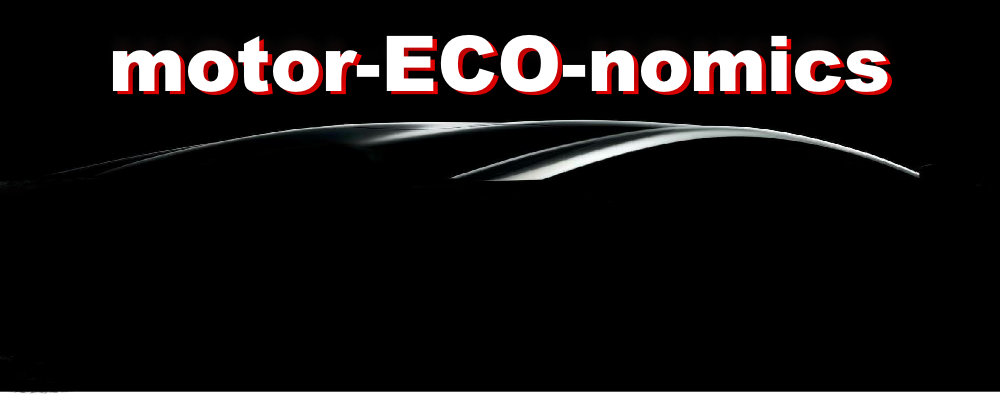History and Ownership
The parent company is Groupe Peugeot headquartered in France. This is a brand created only in 2016 when Carlos Tavares was parachuted into the group together with re-financing (from the French government and Dongfeng from China) to revive the group fortunes. The embryo of this brand already existed within Citroen as the ‘DS’ sub-brand - plagiarising the ground-breaking DS and ID Citroens from the 1950’s. Tavares supported its new life as the luxury brand within the group. Rapid updates, enhancements and nameplate changes were incorporated into the Citroen DS3, DS4 and DS5 with quite limited sales success being concentrated on the already popular DS3, while embryo plans for new models were revised and pushed though to production reality with the new DS 3 and DS 7 in petrol and diesel versions, with hybrids and pure electric versions planned for launch in late 2019.
Brand Equity
This is virtually non-existent and with more than 40 competing brands in the market-place, securing positive brand equity will take many years. The main message es are high-tech and supreme French style.
Much above-the-line advertising is done as a percentage of vehicle prices, with some extent of promotion via the electric GP series - Formula E - in which one team is supported. Thus, each sale is a conquest and the buyer can experience an uphill struggle in gaining respect for buying what is still a largely unknown brand in ‘pub-talk’ terms.
There have been many promises about future electrified vehicles, and if those can be rapidly introduced into the retail sales arena, brand equity will be proportionately boosted. However, history shows the time scale - and costs incurred - by Tesla to gain worthwhile market traction, suggests that this is a particularly high risk plan which requires long term perseverance to achieve.
Retail Network
Initially, shared facilities with Citroen dealers, but currently DS have been securing ‘solus’ dealerships based upon upcoming new product. The ‘solus’ dealerships appear to have been created often by building walls in existing Peugeot group dealerships and using separated manpower at customer-facing levels. Such dealerships will only become sustainable upon widespread consumer acceptance of the DS brand USP and its position in the marketplace, together with knowledge that the DS brand stands for ultra-stylish and technologically advanced vehicles.
There is recognition of the significance of ‘internet’ in leading future sales and the inherent fluidity in designing sales and marketing channels for this embryo brand may be a plus point in the longer term as ‘internet’ becomes more dominant in vehicle sales/use.
There may be a future opportunity to introduce the DS franchise into the existing Opel and Vauxhall dealer networks as a showroom ‘puller’ to bolster their nameplate reputation, volumes and profitability. However it is more likely that multi-marque driving experience centres will favour brands such as DS.
Customer Experience
Very limited customer feed-back is available. Interviews carried out with current owners of IC-engined DS 7 owners suggests a high level of satisfaction in the area of after-sales support and servicing. Owners of the previous DS3, DS4 and DS5 models have not been included here as almost all still use Citroen dealers for after-sales.
Notable Past Models
DS 3 to 2019 - a left-field 3-door alternative to the Peugeot 208 and with rather quirky styling, the ‘DS’ version has an upgraded interior with more standard equipment and a re-worked nose incorporating the DS family grille. What it misses in good looks, it more than makes up for in a startling individuality of style - echoing the long-tradition in Citroen styling!
Current Models
DS 3 - introduced to the UK market in March 2019, this strikes as a small SUV which is strikingly styled and well equipped in the more expensive versions. However under-development resulting in lack of refinement in some areas, is an issue which should not be present in a vehicle which is at the top end of the small SUV market price-wise. Also, it is felt the under-floor space reserved for batteries required in the forthcoming full electric car has unduly compromised packaging in the IC-engined versions.
DS 3 e-Tense - is to be launched in the UK late in 2019 as a battery-only driven small SUV. It is expected this will be the first smaller luxury SUV to go fully electric.
DS 7 - is making sales in relatively small numbers, based upon its unique position as a very stylish SUV using small efficient IC power trains. It is however priced in the premium brand segment and thus faces still opposition from the traditional brands. It is however noted that Volvo is experiencing some success in bursting into this segment although it is believed that their headline pricing is very different from net transaction prices.
DS 7 PHEV - is to be launched in the UK late in 2019. It is to be hoped that this car will eclipse the Mitsubishi Outlander PHEV in terms of economy and range as well as in style, especially as the Outlander has very high customer acceptance at a lower price point.
Future Strategic Plan
DS remain very coy in revealing any plans. We are left to conject that a ‘halo’ car such as an electric mega-sports car rather similar to design exercises seen at motor shows in recent years, would be very desirable as a range leader and showroom filler. A medium-large saloon already exists within the group as the Peugeot 508, and an extensively stylistically re-worked electric version of this car would create a useful small volume seller in the ‘executive/prestige class’ to stimulate consumer awareness and profitability of the whole franchise. But this model path does not appear likely.
In the meantime DS are concentrating upon maximising unit profitability at the expense of low volume. I note that many VM’s have employed this technique in the past - very often with models unworthy of the kudos they are trying to convey - and swiftly adjusted prices and advertising spends after the realisation that their sale/profitability forecasts are way off mark. It is heavily implied that their customers understand the car is ‘beached’ and actually belongs in a lower price category. Thus, DS have a lot of work to do in educating prospective customers in the ethos of the DS marque. The cars so far released, in my opinion do not adequately fulfil that promise and thus need further pricing, mechanical, electrical and styling ‘tuning’. There is also recent circumstantial evidence which suggests large SUV buyers are ‘going premium nameplate’ and DS will need to be pretty nimble and informative to persuade potential buyers that this is in fact a premium brand, very soon indeed.












